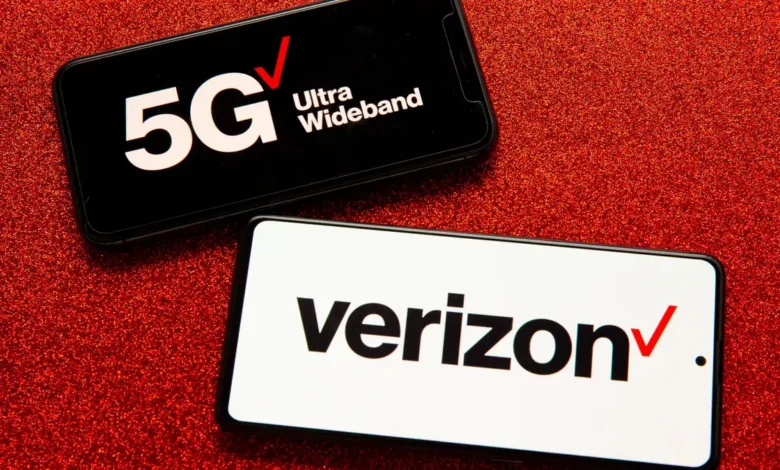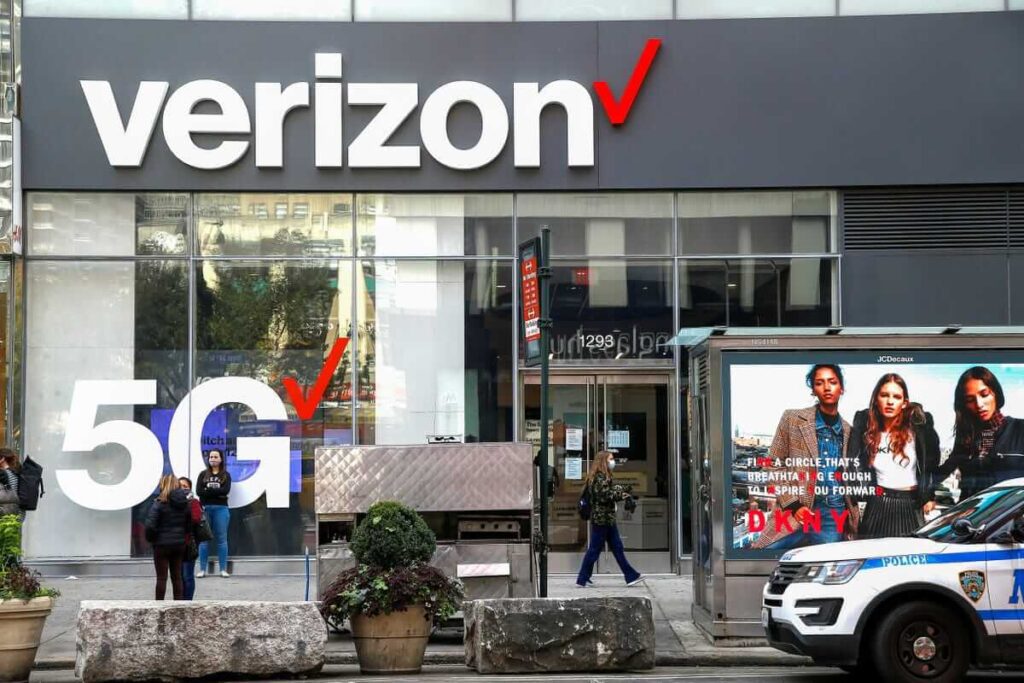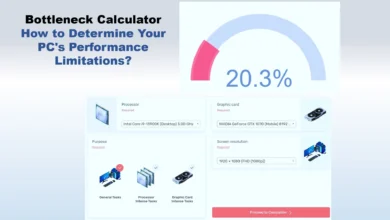Verizon 5G Network: Speed, Coverage and Benefits


Verizon has announced that it will launch its 5G network in 11 markets this year, and the company is already claiming that it has the best 5G technology in the world. But what is mmWave coverage? What is 5G speed? And how will Verizon 5G network compare to other providers?
In this article, we will answer your questions about Verizon’s mmWave coverage and 5G technology! We will also discuss some of the benefits of 5G technology and how it can help your business.
The Verizon mmWave Coverage and Speed:
Verizon is one of the leading providers of 5G network technology in the United States. With their mmWave coverage and blazing-fast speeds, they are quickly becoming a favourite for 5G service.
What is mmWave?
MmWave is a new type of wireless technology that has the potential to revolutionize the way we connect to the internet. MmWave can provide speeds up to 1000 times faster than current LTE speeds.
This means that you could download a full HD movie in just seconds! MmWave also can support more devices on the same network, making it perfect for businesses and homes with multiple users.
One of the benefits of mmwave is that it can be used in both urban and rural areas. This is because mmWave signals can travel long distances and penetrate buildings better than other wireless signals. This means that Verizon’s mmWave coverage is some of the best in the country.
In terms of speed, Verizon’s mmWave network is incredibly fast. Verizon has said that they can achieve speeds of up to 1000Mbps with their mmWave technology. This is an incredible feat; it means you can do anything you want online without worrying about slow speeds.
Overall, Verizon’s mmWave coverage and speed are both impressive. If you are looking for a reliable and fast wireless connection, then Verizon’s mmWave network is worth considering.
What is Verizon mmwave coverage?
MmWave coverage refers to the high-frequency waves used for Verizon’s 5g network. These waves have a shorter range than lower frequencies but can carry more data and provide faster speeds.
What is 4g?
LTE, or Long-Term Evolution, is the fourth generation (or “fourth-generation”) of cellular wireless standards. It is a successor to the third-generation (or “third-gen”) systems such as UMTS and CDMA2000. LTE offers increased bandwidth and spectral efficiency, as well as higher data rates. LTE also supports higher-order modulation schemes and MIMO technology.
What is 5g Network?
The fifth generation of cellular wireless standards, or “fifth-generation,” is the next step in the evolution of mobile networks. With speeds of up to 100 gigabits per second, it will be significantly faster than current LTE networks.
It will also have lower latency, meaning that it can provide real-time connectivity for applications such as virtual reality and augmented reality. In addition, fifth-generation networks will be more energy efficient and use less power than previous generations.
Verizon 4g vs 5g speed?
One of the biggest benefits of Verizon’s mmWave coverage is the Verizon 5g speed. With speeds of up to 1000Mbps, it is one of the fastest wireless networks available. This is a significant increase from the typical 100-200Mbps that you would get with a traditional LTE connection.


What are the benefits of Verizon mmwave coverage?
Some of the benefits of Verizon’s mmWave coverage include:
–Speed: With speeds of up to 1000Mbps, it is one of the fastest wireless networks available.
–Capacity: MmWave frequencies have a lot of capacity, meaning that they can support more users and data than lower frequencies.
–Latency: MmWave technology has very low latency, meaning it can provide real-time connectivity for virtual and augmented reality applications.
The downside to this technology is that the signal does not penetrate walls or other obstacles well, so small cell towers must be deployed in order to provide coverage.
Additionally, the network is still being built out, so there may be areas where coverage is not yet available.
Despite these challenges, Verizon’s mmWave coverage is a cutting-edge technology that can offer many benefits for businesses.
The high speeds and large capacity of the mmWave network make it ideal for businesses and other high-demand users.
Control Plane Network Functions (NF) of the 5G Network:
The control plane network functions (NF) of the fifth-generation core network include:
Mobility Management Function (MMF):
Responsible for managing and tracking the location of mobile devices.
Session Management Function (SMF):
Responsible for setting up and managing user sessions. SMF tracks user sessions, allocates resources, and manages Quality of Service (QoS).
Policy and Charging Rules Function (PCRF):
Responsible for enforcing policies and charging rules. The PCRF is used to manage traffic flows, prioritize services, and control how users are charged for using the network.
Authentication, Authorization, and Accounting Function (AAA):
Responsible for authenticating users and authorizing access to the network.
Identity Management Function (IMF):
This function is responsible for managing user identities.
User Data Management (UDM):
The UDM is responsible for storing and managing user data, such as subscriber profiles, service preferences, and usage records.
These are just a few of the many NFs that comprise the fifth-generation core network. Each NF plays a critical role in ensuring the network runs smoothly and efficiently.
What does an NRF do in a mobile network?
The Network Resource Function (NRF) manages and allocates network resources. The NRF manages traffic flows, prioritizes services, and controls how users are charged for using the network. The NRF is a critical part of the fifth-generation core network and helps ensure the network runs smoothly.
What does a UPF do in a mobile network?
The User Plane Function (UPF) is responsible for forwarding user data packets. The UPF is used to route traffic, provide Quality of Service (QoS), and manage security. The UPF is a critical part of the fifth-generation core network and helps to ensure that the network runs smoothly and efficiently.
What is an EIR in a mobile network?
The Equipment Identity Register (EIR) is a database that stores information about mobile devices. The EIR tracks stolen or lost devices, block fraudulent devices, and manages device security. The EIR is a critical part of the fifth-generation core network and helps to ensure that the network runs smoothly and efficiently.
What 5G Products & Plans does Verizon Offer?
Verizon offers a variety of products and plans for its fifth-generation network, including:
-Unlimited data plans: Verizon offers unlimited data plans for business and consumer customers.
-Shared data plans: Verizon’s shared data plans allow businesses to share data across multiple devices.
-Individual plans: Verizon also offers individual plans for those who only need one line.
-Pay As You Go: For customers who want the flexibility to pay for only the data they use, Verizon offers a Pay As You Go plan.
-Verizon Edge: Verizon Edge is a financing program that allows customers to get the latest smartphones and tablets with low monthly payments.
What is Verizon’s approach to Network Security?
Verizon takes a three-pronged approach to network security:
-Device Security: Verizon offers a variety of device security features, including remote wiping and password protection.
-Network Security: Verizon’s network is designed to be secure from attacks. The company also offers a variety of security features, including firewalls and intrusion detection.
-Application Security: Verizon offers a variety of application security features, including malware protection and encrypted data storage.
What is Verizon’s Approach to Customer Service?
Verizon offers a variety of customer service options, including:
-Online support: Verizon offers online support through its website.
-Phone support: Verizon offers phone support for customers who need help with their service.
-In-person support: Verizon has retail stores where customers can get in-person support.
-Social media support: Verizon also offers customer service through social media platforms like Twitter and Facebook.
What is Verizon’s approach to Network Maintenance?
Verizon has a team of engineers who are responsible for maintaining the network. The team monitors the network 24/seven to identify and fix problems. Verizon also offers a variety of tools and resources, including manuals and FAQs, to help customers troubleshoot problems.
What is Verizon’s approach to Network Upgrades?
Verizon constantly works to upgrade its network. The company regularly adds new features and capabilities to its network. Verizon also offers a variety of tools and resources, such as manuals and FAQs, to help customers troubleshoot problems.
What does Verizon 5G Network Technology Offer Nationwide?
Verizon is also working on several other initiatives to expand the reach of its network. These include working with partners to deploy small cells in urban areas, expanding its fibre network and deploying millimetre wave technology in select markets. Verizon is continuing to work on its infrastructure to improve coverage and capacity.
Read More: Verizon App Manager: How to Manage Apps on Verizon?




